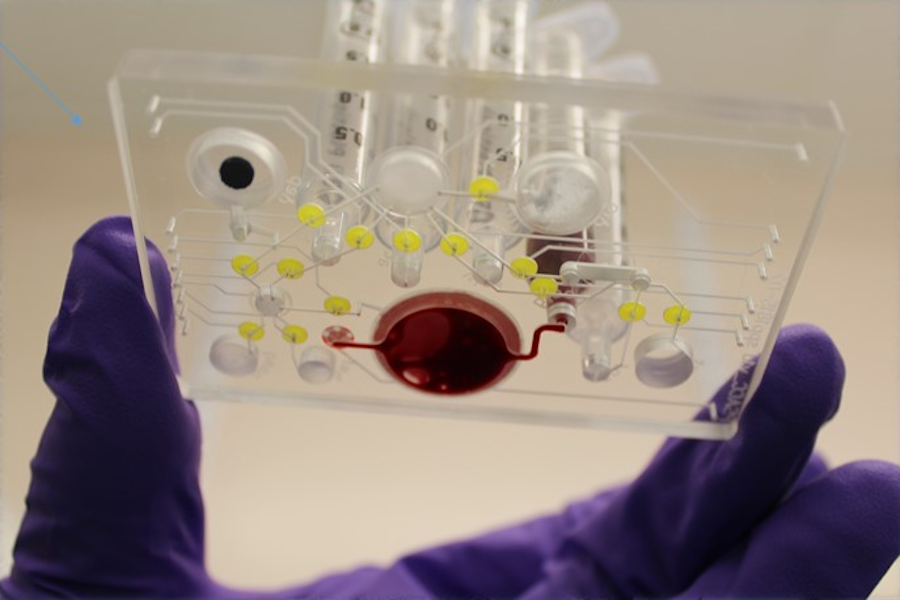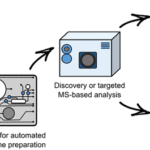Immunoassays are used for decades in clinical laboratories to quantify proteins in blood samples. However, MS-based proteomics analysis has recently appeared as a promising option to assess panels of protein biomarkers and provide protein profiles useful for health state monitoring. Nevertheless, the translation of MS-based proteomics into the clinics is hampered by the complexity, the substantial time and human workforce necessary for sample preparation. The processing of plasma matrix is especially tricky as it contains more than 3000 proteins spanning in an extreme dynamic range (1010) of concentrations. In close collaboration with CEA LETI, we have designed and concieved a microfluidic device (Pep’s) to automate and fasten blood sample preparation for proteomics analysis. The microfluidic cartridge is operated with a dedicated compact instrument providing fluid pneumatic driving, pressure and thermal control as well as a computer processing unit and a fluidic interface. Pep’s device allows whole blood collection at bedside, plasma separation and calibration, depletion of abundant proteins, protein digestion with trypsin and tryptic peptide stabilization on C18 resin, in less than 2 hours. The performance of Pep’s device was assessed using a panel of 5 protein biomarkers routinely assayed in clinical laboratories. Pep’s capability for therapeutic antibody analysis and quantification in plasma was also demonstrated. This innovative microfluidic device and associated instrumentation [patent WO/2017/162956] is expected to streamline and simplify clinical proteomics studies. In September 2019, Pep’s was awarded the price “Innovation Team Best Practices” from the Club de Paris des Directeurs de l’Innovation and Université Paris 1 Panthéon-Sorbonne.
Collaborators



